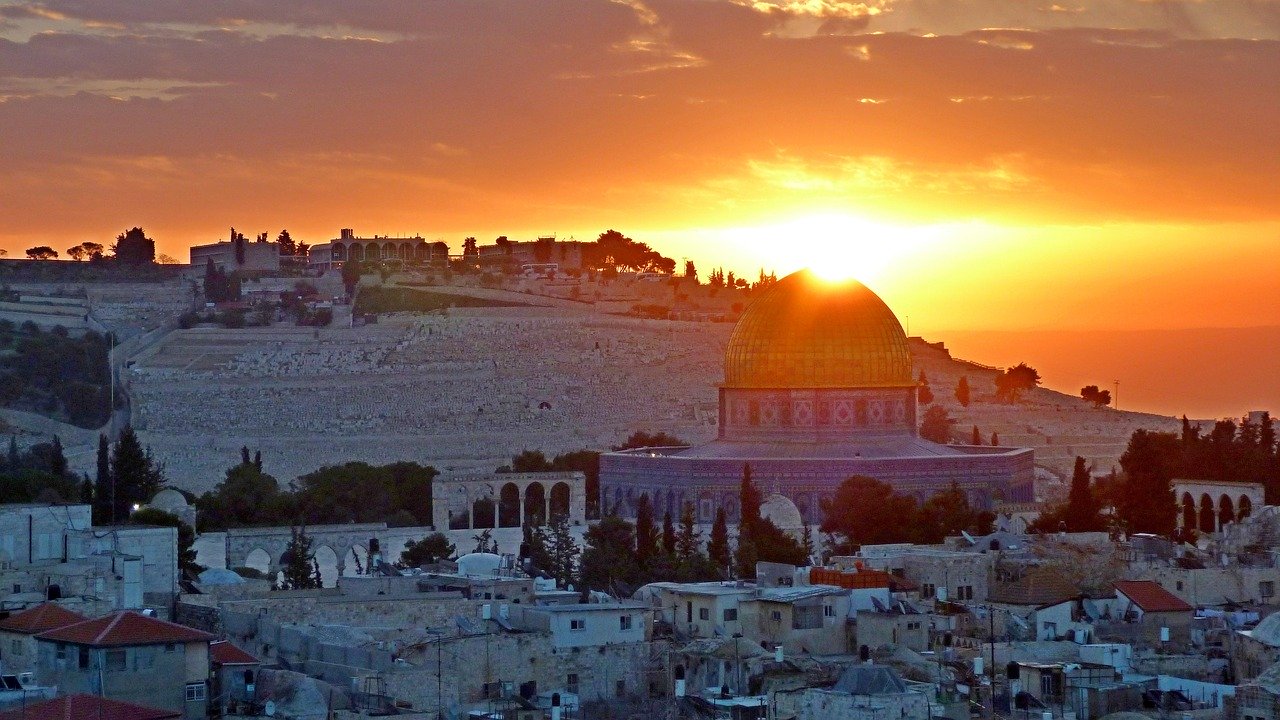
A U.S.-brokered diplomatic breakthrough in the Middle East has at least temporarily averted a new regional security crisis by persuading Israel to suspend annexation of occupied Palestinian territories in exchange for full diplomatic relations with the United Arab Emirates.

It’s being hailed by Middle East analysts and editorial writers as “historic,” “an opportunity to promote real peace in the region,” “a geopolitical earthquake.”
The accord, announced by President Trump with much self-congratulation on Thursday, drew muted praise from other Arab states hoping to ease tensions with Israel and concentrate on the more ominous threat they see from an increasingly hostile Iran.
Palestinians, who were left out of the latest diplomatic initiative, denounced the UAE bow to Israel as a “stab in the back” and a “betrayal” by Arab neighbors whose support for Palestinian territorial claims is no longer rock-solid.
Predictably, Iran lashed out at the closing ranks of its enemies with warnings of “dangerous consequences” for “an evil action” it ascribed to the perfidious influence of the United States.
The diplomatic realignment appears intended to pressure adversarial factions to compromise in pursuit of peace. The hope is that the Palestinians will recognize the weak hand they have been dealt now that their Arab Gulf allies are engaging with Israel, that the Palestinians will have to return to stalled negotiations to get what patches of territory they can for their elusive state.
Some theorize that Israeli Prime Minister Benjamin Netanyahu might stop pandering to his political base of 500,000 Jewish settlers in the occupied lands and side with more centrist Israelis to forge an equitable agreement that would give Palestinians a viable state.
The UAE decision to open ties with Israel defects from the Saudi-sponsored 2002 Arab Peace Initiative in which Gulf Arab states offered Israel normalization of diplomatic relations on condition the Jewish state agree on a plan to divide or trade territories necessary for separate Israeli and Palestinian states.
Emirati Foreign Minister Anwar Gargash said UAE departed from the Saudi initiative to stave off the devastating disruptions that would have followed Netanyahu’s annexation of occupied lands this summer.
“The UAE is using its gravitas and promise of a relationship to unscrew a time bomb that is threatening a two-state solution,” Gargash told journalists in defense of the agreement.
Arab neighbors fear that Israeli annexation, including East Jerusalem and the Al-Aqsa Mosque that is Islam’s third-holiest site, will instigate a fresh flood of Palestinian refugees into Jordan and infuriate Saudi Arabia’s conservative clerics who are the guardians of the holiest sites of Mecca and Medina.
Those threats of rising instability still loom, as Netanyahu insists the annexations have only been delayed, not cancelled. At best, the UAE-Israel agreement defuses the time bomb long enough for other Arab states to collaborate in a change of strategy for resolving the intractable conflict.
What unites the parties to last week’s agreement is mutual animosity toward Iran. Arab states opposed the 2015 Iran nuclear deal and cheered Trump’s withdrawal from the agreement and imposition of new sanctions.
The unilateral U.S. action has succeeded in impoverishing Iran and demoralizing its overwhelmingly young population that had been anticipating a closer ties with Europe and the United States under the nuclear accord. By scuttling the pact agreed by the world’s major powers, Trump removed any incentive for Iran to comply with the terms of a deal designed to halt Tehran’s quest for nuclear weapons. The centrifuges are spinning again.
Middle East analysts see a few short-term upsides from the Israeli-UAE agreement. Israel and UAE can now openly collaborate in trade, technology, energy and security, as they have been doing in under-the-radar diplomacy for years. The surprise announcement also provides a boost for both Trump and Netanyahu against their slumping approval ratings and abysmal responses to their Covid-19 crises.
Now that the unity of Gulf Arab on the Israeli-Palestinian conflict is fracturing, other Gulf nations may sign on to the new strategy of forcing the Palestinians to return to negotiations with Israel, perhaps brokered by UAE or other regional Arab allies.
Glaringly absent among those weighing in on last week’s agreement is Saudi Arabia, architect of the Gulf Arab strategy and the most influential power in escalating Sunni Muslim conflicts with Iranian Shiites. Saudi Crown Prince Mohammed bin Salman is struggling to implement his vision for a transformed kingdom by limiting the authority of the ultraconservative clergy. He also faces damning criticism on human rights, including the gruesome murder of Washington Post columnist Jamal Khashoggi in 2018.
Bilal Y. Saab, senior fellow and program director at the Middle East Institute, called Israel the big winner in the UAE agreement, largely because it saved Netanyahu from the diplomatic and security disasters that would have been provoked by annexation. The Israeli leader “pocketed normalization with a rising Arab power in return for something he wasn’t likely to do and was not in Israel’s long-term interest,” Saab wrote in an opinion piece for Foreign Policy magazine.
On CNN’s “Fareed Zakaria GPS” on Sunday, former State Department director for policy planning during the Obama administration, Anne-Marie Slaughter, attributed the accord to Trump’s pursuit of an Israeli-Palestinian peace deal that he can claim as a foreign policy coup, at whatever price or viability.
“Instead of making peace between Israel and the Palestinians, he is making peace around the Palestinians,” she said, casting doubt on the future of a plan that neglects a two-state solution.
New York Times columnist Thomas L. Friedman, who enthusiastically proclaimed the UAE-Israel normalization of relations “a geopolitical earthquake,” said it showed, at least for a moment, “that the past does not always have to bury the future, that the haters and dividers don’t always have to win.”
Discover more from Post Alley
Subscribe to get the latest posts sent to your email.
